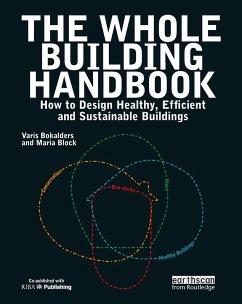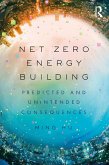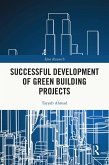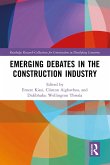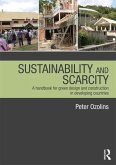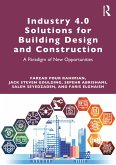The Whole Building Handbook is a compendium of all the issues and strategies that architects need to understand to design and construct sustainable buildings for a sustainable society. The authors move beyond the current definition of sustainability in architecture, which tends to focus on energy-efficiency, to include guidance for architecture that promotes social cohesion, personal health, renewable energy sources, water and waste recycling systems, permaculture, energy conservation - and crucially, buildings in relation to their place.
The authors offer a holistic approach to sustainable architecture and authoritative technical advice, on:
* How to design and construct healthy buildings, through choosing suitable materials, healthy service systems, and designing a healthy and comfortable indoor climate, including solutions for avoiding problems with moisture, radon and noise as well as how to facilitate cleaning and maintenance.
* How to design and construct buildings that use resources efficiently, where heating and cooling needs and electricity use is minimized and water-saving technologies and garbage recycling technologies are used.
* How to 'close' organic waste, sewage, heat and energy cycles. For example, how to design a sewage system that recycles nutrients.
* Includes a section on adaptation of buildings to local conditions, looking at how a site must be studied with respect to nature, climate and community structure as well as human activities.
The result is a comprehensive, thoroughly illustrated and carefully structured textbook and reference.
The authors offer a holistic approach to sustainable architecture and authoritative technical advice, on:
* How to design and construct healthy buildings, through choosing suitable materials, healthy service systems, and designing a healthy and comfortable indoor climate, including solutions for avoiding problems with moisture, radon and noise as well as how to facilitate cleaning and maintenance.
* How to design and construct buildings that use resources efficiently, where heating and cooling needs and electricity use is minimized and water-saving technologies and garbage recycling technologies are used.
* How to 'close' organic waste, sewage, heat and energy cycles. For example, how to design a sewage system that recycles nutrients.
* Includes a section on adaptation of buildings to local conditions, looking at how a site must be studied with respect to nature, climate and community structure as well as human activities.
The result is a comprehensive, thoroughly illustrated and carefully structured textbook and reference.
Dieser Download kann aus rechtlichen Gründen nur mit Rechnungsadresse in A, B, BG, CY, CZ, D, DK, EW, E, FIN, F, GR, HR, H, IRL, I, LT, L, LR, M, NL, PL, P, R, S, SLO, SK ausgeliefert werden.

